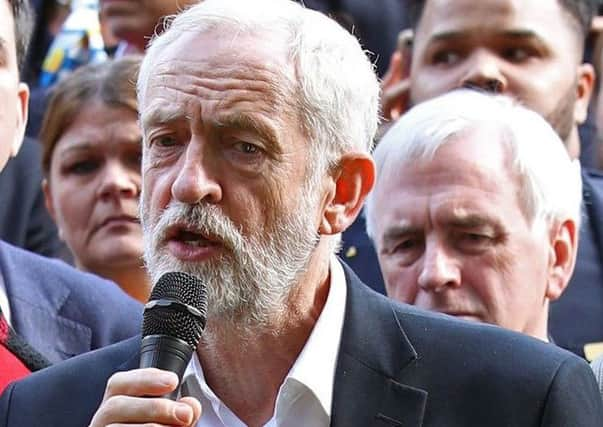Corporate rewards for failure are fuelling public discontent – leader comment


“For the many, not the few” has become the Labour party’s mantra under Jeremy Corbyn, but it’s not just the left that has railed against a supposedly out-of-touch, privileged elite. Nigel Farage, Donald Trump and co have made clear their view that the world’s problems can be laid at the door of the “liberal elite”, while Boris Johnson is reportedly preparing for a “People vs Parliament” election.
Perhaps it’s a no-brainer for any political spin doctor; in times of austerity, there are votes to be had in pointing the finger at those who are doing well and blaming them for woes of ‘ordinary people’.
Advertisement
Hide AdAdvertisement
Hide AdHowever, it would be a dangerous mistake for anyone to dismiss such sentiments, no matter how cynically they are being exploited. These are clever politicians, picking up on a growing sentiment in countries around the world.
In big business, there are good reasons for companies to pay their senior management salaries and bonuses that can seem eye-watering when compared to their frontline staff. There is a limited supply of good chief executives – the sort of people who can make a real difference to a firm’s bottom line – so they command a high market price for their services.
‘Deeply sorry’
However, paying bonuses to senior staff of companies that fail or under-perform adds to the popular impression that the system is rigged in favour of those at the top. While most people would recognise success should be more than its own reward in the business world, vast rewards for failure are difficult, close to impossible, to understand.
So Peter Fankhauser, former chief executive of the collapsed travel company Thomas Cook, should reflect on his bonuses – which totalled more than £500,000 in 2017 – after explaining how “deeply sorry we are that we couldn’t save this iconic brand” to a committee of MPs.
Labour MP Rachel Reeves pointedly told Fankhauser that the money could be “put to better purpose” such as redundancy payments for staff or compensation for tax-payers. Fankhauser said he would “consider what is right”.
If the Fankhausers of this world choose to keep taking the money, public anger may eventually boil over. To a degree, the Brexit referendum result was a vote to ‘smash the system’ in the hope of something better.
Particularly if that hope is dashed, support for even more radical change may start to grow.
